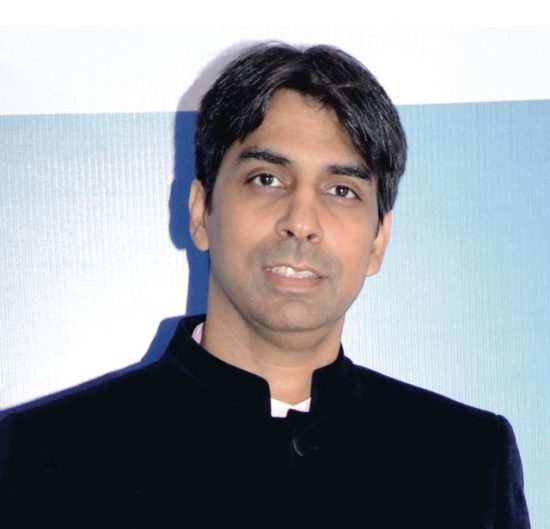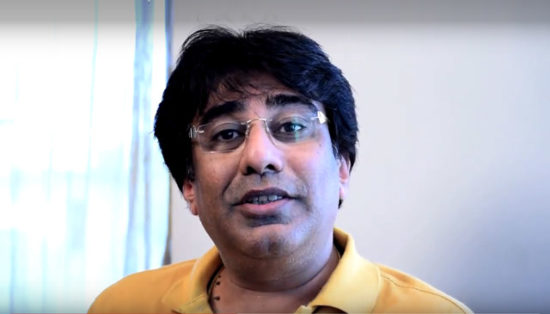Edvantez is founded by C.E.E.P.L., symbolizing the advantage of acquiring education online. The flagship company has helped both the founders, Ashish Jhalani and Nayan Bheda to realize a dream – that of training individuals to become successful entrepreneurs. Edvantez entails taking their e-commerce expertise online for the many thousands who are unable to avail of their classroom based course due to geographical, financial and time constraints. In an interview with Estrade, they shared the pros and cons and future of E-education in India.
- Team Estrade: How did you come to found Edvantez?
Mr Bheda & Mr Jhalani: In our every batch, we get participants coming from different corners of our country. We realized that there are many more out there who wish to attend our course, but unable to do so – either for geographical constraint or financial constraint. That is when we decided to take the course to them.

- Team Estrade: What potential does eCommerce education and training have?
Mr Bheda & Mr Jhalani: It doesn’t matter if you are a successful or failed entrepreneur who has the flair but is falling short of ideas. We will teach you the maths, science and the art of developing an idea and building a startup venture from scratch. They can learn the skills of entrepreneurship from the entrepreneurs themselves.
The potential of eCommerce education and training is huge in India. Currently, the market in India for e-education is pegged at US$3 bn and is growing at 17.4%. Having said that, entrepreneurship is growing in India. It has become a new career mantra. With central government’s initiatives and drive like Startup India, it is expected that in next 5 years India will produce more than 10 million new entrepreneurs. Thus, all in all, the market for e-education for entrepreneurs is huge.
- Team Estrade: Are there any constraints of teaching on eCommerce/ online space?
Mr Bheda & Mr Jhalani: The biggest strength of online education is that one or few instructors can reach tens of thousands of students in a single class; this is also its biggest weakness. It is not possible for a teacher to interact with every single student in the class. The other challenge is to how to bring all the students together and connect them in an asynchronous setting. There is another issue of an expert’s blind spot, in other words, the instructors tended to believe certain problems were easier than they actually were, not able to pin point the spots in the course where the students are struggling to understand.
In short
- Size of e-classroom becomes a hindrance to faculty.
- E-classroom also robs away the personal touch and in-the-class interactions (between the students and between student & faculty)
- The collective learning between the participants is missed out since all the participants are scattered across geography.

- Team Estrade: Tell us about Indian School of E-business
Mr Bheda & Mr Jhalani: ISeB was founded to realize a common dream – that of training individuals to become successful entrepreneurs. ISeB has helped in creating Digital Entrepreneurs, mentoring and helping them to raise funds. It is enabling its students to launch and run their own eBusinesses independently and successfully. ‘Edvantez’, entails taking their ecommerce expertise online for the many thousands who are unable to avail of their classroom based course due to geographical, financial and time constraints. Since 2014, it has trained more than 400 + students and mentored thousands of them. Its select list of industry partners includes eTailing India, Shopify, DYNAcorp, netCORE, Atom Technologies and WebXpress.
- Team Estrade: Will experience overrule education in this new age of economy?
Mr Bheda & Mr Jhalani: New age economy is digital based economy, use of digital tools to improve employee productivity, customer engagement, customer satisfaction and loyalty is call of the day. Technology is an enabler not only for young audience but also for experienced people who want to be in sync with the new age digital economy.
- Team Estrade: What is the future of eCommerce education?
Mr Bheda & Mr Jhalani: Future of eCommerce education is intertwined with the growth of eCommerce Industry. E-commerce sales in India are expected to grow from $14 billion in 2015 to $55 billion in 2018, says a report by marketing research firm eMarketer. The Internet economy is also an employment generation engine. In India, the ‘Internet’ sector already employs 4-5 lakh people and is expected to create nearly 15-20 lakh jobs by 2018.
India e-education is pegged at US$3bn and growing at 17.4%: Edvantez





